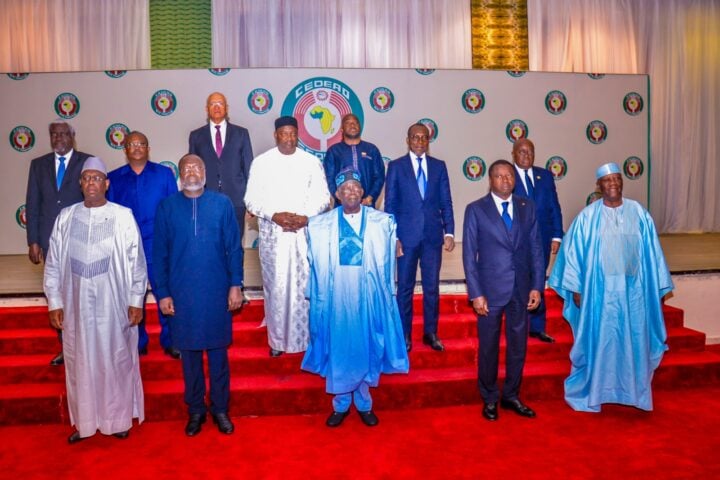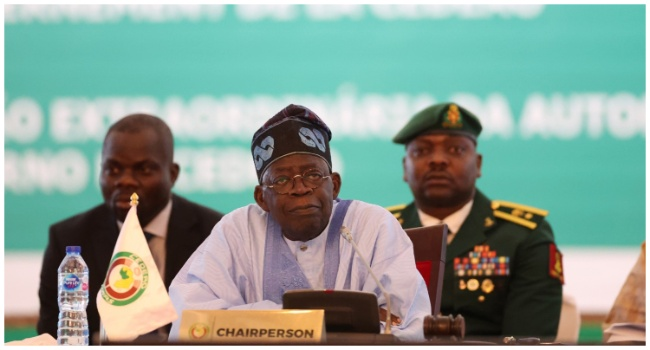In the ever-evolving landscape of the digital age, the pursuit of clout, or online fame, has become a ubiquitous phenomenon. From viral challenges to influencers vying for likes and shares, clout chasing has gripped our social media feeds and reshaped the way we seek for and manage influence. However, beneath the surface of this trend lies a deeper, more profound transformation – the rise of the attention economy. In a world where every scroll, click, and like contributes to the digital economy, people’s attention is the most sought-after commodity.
Welcome to the Attention Economy, a space where eyeballs are the currency, and every digital entity wants a piece of the action. Understandably, Nigeria with its teeming population and young population provides an intriguing backdrop to the battle for attention, which belies a complex mix of digital cultures, tapestry of ethical concerns and societal impacts. To put this in context, imagine a marketplace where your attention is bought and sold, where your emotions are meticulously manipulated, and where the line between engagement and addiction blurs.
To get a full understanding of what this is all about, you have to go back to the nineteenth century, with the establishment of the first set of newspapers that were fully dependent on advertising. That ‘lineage’ as Tim Wu calls it in his eye-opening book, ‘The attention merchants: The epic struggle to get inside our heads,’ also includes the roguish discovery and use of the power of mass attention by British war propagandists in the twentieth century and its full adoption by industries, which have mastered the art of ‘harvesting human attention and reselling it to advertisers.’ With whole economies being built around it, the game has been transformed over time, with attention merchants competing for and commercially exploiting chunks of our hitherto un-harvested awareness. Advertising used to be annoying because at least we knew someone was trying to sell us something, but the attention economy has succeeded in dulling our collective resistance to the point where, as Wu writes, ‘… most of us carry devices on our bodies that constantly find ways to commercialise the smallest particles of our time and attention’.
Obviously in the Attention Economy, content is king, and user engagement reigns supreme. Imagine the last time you scrolled through your social media feed, engrossed in a captivating video or a thought-provoking post. Without noticing it, you were ensnared in the attention web, and the content creator achieved their goal – your undivided focus for that moment. Nigeria, with its young population and the vibrant digital culture that goes with that, is a perfect illustration of this phenomenon. From influencers to businesses, and even churches, everyone vies for your attention, and they’ve all mastered the art of keeping people hooked. While there is no problem with content creators targeting engagement, the only worry is whether there is a chance that in this quest something more sinister is going on?
Advertisement
I know sceptics will sneer and ask, ‘what does it matter?’ and I admit that the millions who follow Mark Angel, or any other skit maker for that matter; or the religious leaders who have developed profitable online presence see value in the ‘digital products’ from their ‘idols.’ If we were to look through the lens of the uses and gratification theory alone, the motives of the content creator would not matter because we know by now that people consume media principally to pass time, then at other times as a form of social interaction and cementing social status. However, I think legitimate questions can and should be asked about the motive; especially if the net impact of the content produced solely with profits as the only motivation in mind is negative.
Once again, I want to emphasise that I have no issue with skit makers who create silly jokes or pastors who view early morning prayers solely as content that generates income on platforms like YouTube. They have simply mastered the art of capturing attention and should be allowed to profit from it. However, although the uses and gratification theory dismisses the idea of media effects, the possibility that the media can subconsciously influence our lives and shape our worldview challenges the notion that we only use media to satisfy specific needs. In fact, it emphasises the significant impact of the media on modern society.
I am concerned that attention merchants like Mark Angel, other skit makers, and religious leaders who view prayers as mere digital content are exploiting their unsuspecting followers by commercialising their attention. While they may not be breaking any laws, the manipulation of user attention for profit suggests a darker side to the attention economy. This should be a concern for those who care about the media in all its forms. However, exploring this dark side won’t be easy, especially considering that skit makers and clout chasers in Nigeria tend to be particularly reckless. In a previous article, I expressed my belief that their choice of subjects reflects their intellectual capacity, with the more empty-headed individuals being the most daring. What am I trying to say here? I am convinced that succeeding in the attention economy relies on employing questionable tactics, which I will now proceed to highlight.
Advertisement
Firstly, attention merchants employ various tactics to keep users engaged, such as notifications, addictive design features, and endless content streams. This is particularly prevalent in Nigeria, where social media addiction is on the rise and users spend hours glued to their devices. However, it’s important to consider the impact on mental health. The constant need for validation through likes and shares can lead to anxiety and low self-esteem, which is especially significant in a culture where online validation holds great importance.
Secondly, due to the relentless pursuit of our attention and engagement, algorithms often personalise content, creating filter bubbles that expose users only to information that aligns with their existing beliefs. This reinforces echo chambers within the social media ecosystem, where people are only exposed to information or opinions that confirm their own. This limits diverse perspectives and deepens divisions, as evidenced by the exchanges on social media during Nigeria’s last general elections. Constructive dialogue and understanding across ideological lines have become increasingly rare.
Thirdly, the attention economy has become a breeding ground for the rapid spread of fake news and misinformation. In Nigeria, where rumors and unverified information can spread rapidly, the consequences can be dire. From health-related hoaxes to politically motivated disinformation, the line between fact and fiction is becoming increasingly blurred.
Fourthly, the monetisation of user data raises ethical concerns. In the attention economy, monetisation often relies on advertising, subscriptions, or selling user data, which is the backbone of social media platforms. Nigerian users may not always be aware of how their data is used or monetised. Ironically, people are conditioned to accept the harvesting and monetization of their personal data in exchange for visibility and profit on these platforms.
Advertisement
These issues are difficult to address as they require the cooperation of the same people whose attention is being systematically exploited. Dealing with the dark side of the attention economy requires a multifaceted approach involving governments, regulators, tech companies, and users themselves. Discussions on privacy regulations, antitrust actions against tech giants, and digital literacy programs should take center stage in Nigeria to address these concerns.
As we navigate the attention economy in Nigeria, it is crucial to strike a balance between the benefits of digital engagement and the ethical considerations that come with it. Awareness is the first step, followed by responsible digital citizenship and advocating for a digital landscape that prioritises and well-being over the commercialisation of attention.
Olaniyan, PhD, is the Convener, Centre for Social Media Research, Lagos
Advertisement
Views expressed by contributors are strictly personal and not of TheCable.
Add a comment







